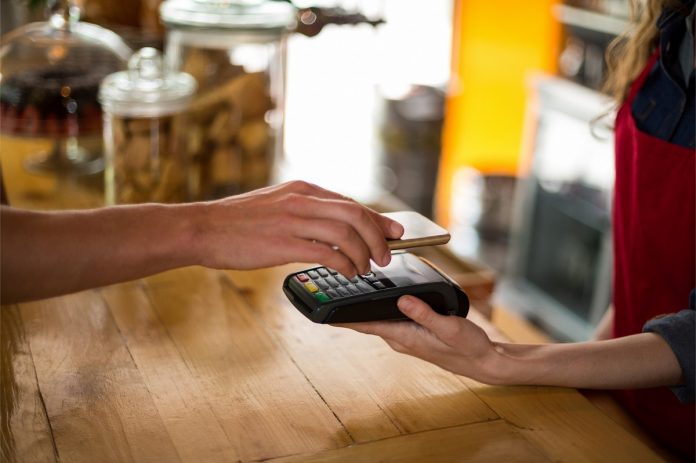For most retail transactions, not much thought is given to how money is exchanged. Consumers simply rely on the use of electronic payment methods; slide a debit card into a machine, the receipt prints, and the transaction ends quickly. For those working in the cannabis industry, facilitating electronic payments was a challenge long before the COVID-19 pandemic made cashless transactions even more critical than ever.
For this week’s “Changing Habits” installment, we spoke with executives at Hypur and Dama Financial, two companies that offer modern payment solutions for our forward-thinking industry, about how the coronavirus crisis is impacting their operations.
Like many other organizations, the workplace has changed but the workload remains the same.

“At Hypur we shifted to a remote work environment during COVID but our daily activities remained the same,” said Tyler Beuerlein, chief revenue officer at Hypur.
Hypur is focused on offering cannabis payment options that eliminate the need for customers and dispensary staff to conduct business face to face.
“The release of our Safe Checkout product enables consumers and dispensaries the ability to conduct permissible, convenient and sustainable transactions without the need for physical interaction between the two parties,” Beuerlein said. “It has helped to streamline the transaction process while keeping everyone safe at the same time.
“The launch of our contactless version of HypurPay along with our integrations with [point of sale], pre-order, delivery, and wholesale platforms has created significant adoption throughout the cannabis ecosystem,” Beuerlein continued. “The pandemic has created a shift in both retail strategy and consumer expectation toward a more mainstream, convenient experience which enables Hypur and our partners to thrive.”
Like Hypur, Dama Financial also had to ensure the safety of its team first and foremost.

“As shelter-in-place went into effect, Dama Financial was proactive in ensuring the safety and health of its team members,” said Eric Kaufman, chief revenue officer at Dama Financial. “Immediately, all employees across all offices started working remotely (and still do). Everyone took home their workstations and we’ve supported them with any additional equipment they might need.”
Because dispensaries have been designated essential businesses in many states, payment processors like Dama have made big adjustments to their daily operations. Retail clients that already were in need of reduced in-person interactions with customers and patients now are seeking electronic payment options more than ever.
The essential designation “drove increased demand from the consumer to be able to purchase products,” Kaufman said. “It also forced increased demand from merchants to be able to sell to their customers and transact electronically, as they were required to pivot to e-commerce, delivery, curbside, and order ahead options.”
One of those payment options, a digital consumer wallet known as “Paytender,” allows for contactless payment. “The best way to visualize it is that for the consumer it’s analogous to Venmo meets the Starbucks app when purchasing in-store, or a similar experience to checking out with PayPal when online,” Kaufman said. “And, unlike other solutions in the cannabis marketplace, it affords consumers two ways in which to pay; ACH and debit.”
As with the implementation of any new technology, employees require adequate training in its use, but in-person training is simply not an option at this time.
“We switched to virtual demos and virtual Zoom training for dispensaries,” said Kaufman. “We also created installation kits with easy to follow instructions in lieu of sending a member of our team out to the store. It is similar to when you receive your modem in a box from the cable company.”
The cannabis industry has always had to turn lemons into lemonade. Draconian regulations, while inconvenient and often morally unjust, have long motivated innovation and creativity within the space. Although transparency and common sense should have been the primary reasoning behind the expansion of electronic payment options for cannabis, it took a global pandemic.
“Adapting to COVID-19 has been an adjustment for everyone,” Kaufman said. “But, through this process, we’ve created new, more efficient, and sustainable processes around Paytender. As well, it’s sped up the timelines for integration with a number of the larger POS providers in cannabis, enabling retail businesses to start accepting contactless payments essentially with the flip of a switch.”












